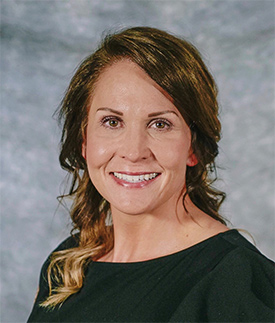Accessibility Services
Frequently Asked Questions
What are reasonable accommodations?
They are modifications necessary (not imposing undue burden) to ensure access to essential
course content and essential learning activities to a person with disabilities. Types
of academic coursework to which students with disabilities need access include lectures,
written assignments, field or lab work, exams, class discussions, Internet research,
and/or participation in class activities. Some examples of reasonable accommodations
in postsecondary settings include sign language interpreters, preferential seating,
note takers, scribes, flexible attendance requirements, test modifications, and classes
in accessible locations.
Is information about my disability kept confidential?
The office of Accessibility Services holds all records confidentially unless a student
gives written permission to release the information, this includes faculty members.
How can faculty encourage students with disabilities to apply for services?
One way is letting students know, from the beginning of a course, that you are available
to discuss accommodations for disabled students. The best accommodations are tailored
to the individual and are often the result of a cooperative effort between the faculty
member, the student, and staff of the disability services office. Another way is to
include in the syllabus a statement like: "To request academic accommodations due
to a disability, please contact the disabled student services office 265-520."
Is it fair to other students that some students can get accommodations in tests and
others not?
The Rehabilitation Act and the Americans with Disabilities Act (ADA) states: "The
results of an examination should accurately reflect an individual's aptitude or achievement
level or whatever the test purports to measure, rather than reflecting an individual's
impaired sensory, manual, or speaking skills."
How do College Services Differ from High School Services?
Students with disabilities are entitled to accommodations in school, be it K- 12 (public) or post-secondary education. However the nature and delivery of those accommodations, as well as the distribution of responsibility, differ significantly between high school and college. The following table illustrates some of these differences.
| High School | College | |
| IDEA and Section 504 are the laws that mandate "free and appropriate public education" for all K-12 students, no matter what the ability level; education at this level is a right | The ADA and Section 504 guarantee equal access to post-secondary education by requiring "reasonable accommodations" to college students who are "otherwise qualified" as a student; education at this level is a privilege | |
| The only qualification for public education is age; students with disabilities may qualify for special education | "Otherwise qualified" students must meet all entrance and academic progress requirements with or without reasonable accommodation; there is no "special education" in college | |
| In order to meet the "free and appropriate public education" requirements, educational standards may be compromised by making such accommodations as shortening assignments, allowing students to use notes, books or other resources on tests when other students may not, or taking untimed tests | NO accommodation at the post-secondary level may reduce standards or in any way compromise the integrity of the course; accommodations must be deemed reasonable, and agreed upon by the student, the DS provider and the instructor; e.g. extended time for tests may be a reasonable accommodation, but untimed tests is not reasonable | |
| Accommodations are driven by the Child Study Team, consisting of teachers, counselors, school psychologists, parents and the student, which develops an IEP or 504 Plan | There is no team, no plan, no notification of instructors except by the student, and parents are not involved in any way except at the written request of the student | |
| Various levels of placement are available with varying levels of integration into the regular classroom; the student's "team" determines which placement is the "least restrictive environment" (required by IDEA) | Full integration with or without reasonable accommodations is the only option | |
| A Student's plan, academic history and needs are shared with all teachers before s/he enters the class | Instructors will only be contacted by the college at the request of the student, and this request must be made for each instructor, for each course and renewed each semester; students may decline accommodations they do not need or want | |
| Some graduation requirements may be waived if the student's disability specifically interferes with his/her ability to successfully complete that subject or class | Many colleges and/or programs have a process in place to determine eligibility for course substitutions when a student's disability affects that subject (e.g. foreign language), but waivers are not an option | |
| Public schools must provide assessment services, physical, speech or other therapy, or personal care services needed while the student is in school | Personal care, medical, psychological and/or therapeutic services and other non-academic needs are the responsibility of the student | |
| Teachers may be provided with educational information about a student's disability, or they may be expected to learn as much as they can about their student' s disability | The only information instructors are given by the college is what accommodations are appropriate, and then, only when requested by the student to do so; students may choose to disclose information about their disability, but instructors may not ask students about their condition, nor are they expected to gather information or "be informed" | |
| The primary responsibility for identification, assessment (as appropriate) and determination of disability and for requesting accommodations is on the school | The primary responsibility for identification, assessment and determination of disability and for requesting accommodations is on the student |






